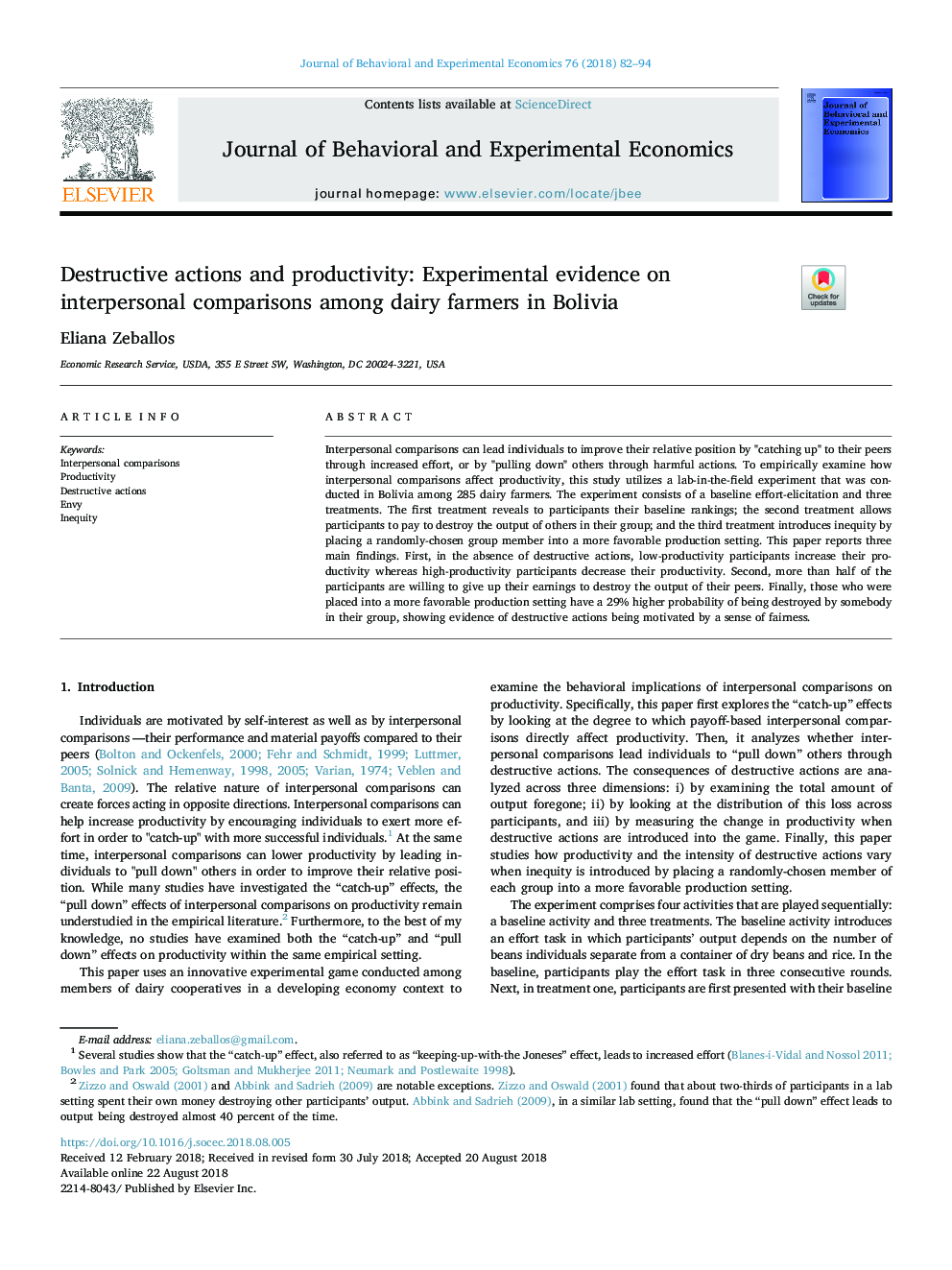| Article ID | Journal | Published Year | Pages | File Type |
|---|---|---|---|---|
| 9952865 | Journal of Behavioral and Experimental Economics | 2018 | 13 Pages |
Abstract
Interpersonal comparisons can lead individuals to improve their relative position by "catching up" to their peers through increased effort, or by "pulling down" others through harmful actions. To empirically examine how interpersonal comparisons affect productivity, this study utilizes a lab-in-the-field experiment that was conducted in Bolivia among 285 dairy farmers. The experiment consists of a baseline effort-elicitation and three treatments. The first treatment reveals to participants their baseline rankings; the second treatment allows participants to pay to destroy the output of others in their group; and the third treatment introduces inequity by placing a randomly-chosen group member into a more favorable production setting. This paper reports three main findings. First, in the absence of destructive actions, low-productivity participants increase their productivity whereas high-productivity participants decrease their productivity. Second, more than half of the participants are willing to give up their earnings to destroy the output of their peers. Finally, those who were placed into a more favorable production setting have a 29% higher probability of being destroyed by somebody in their group, showing evidence of destructive actions being motivated by a sense of fairness.
Related Topics
Social Sciences and Humanities
Economics, Econometrics and Finance
Economics and Econometrics
Authors
Eliana Zeballos,
